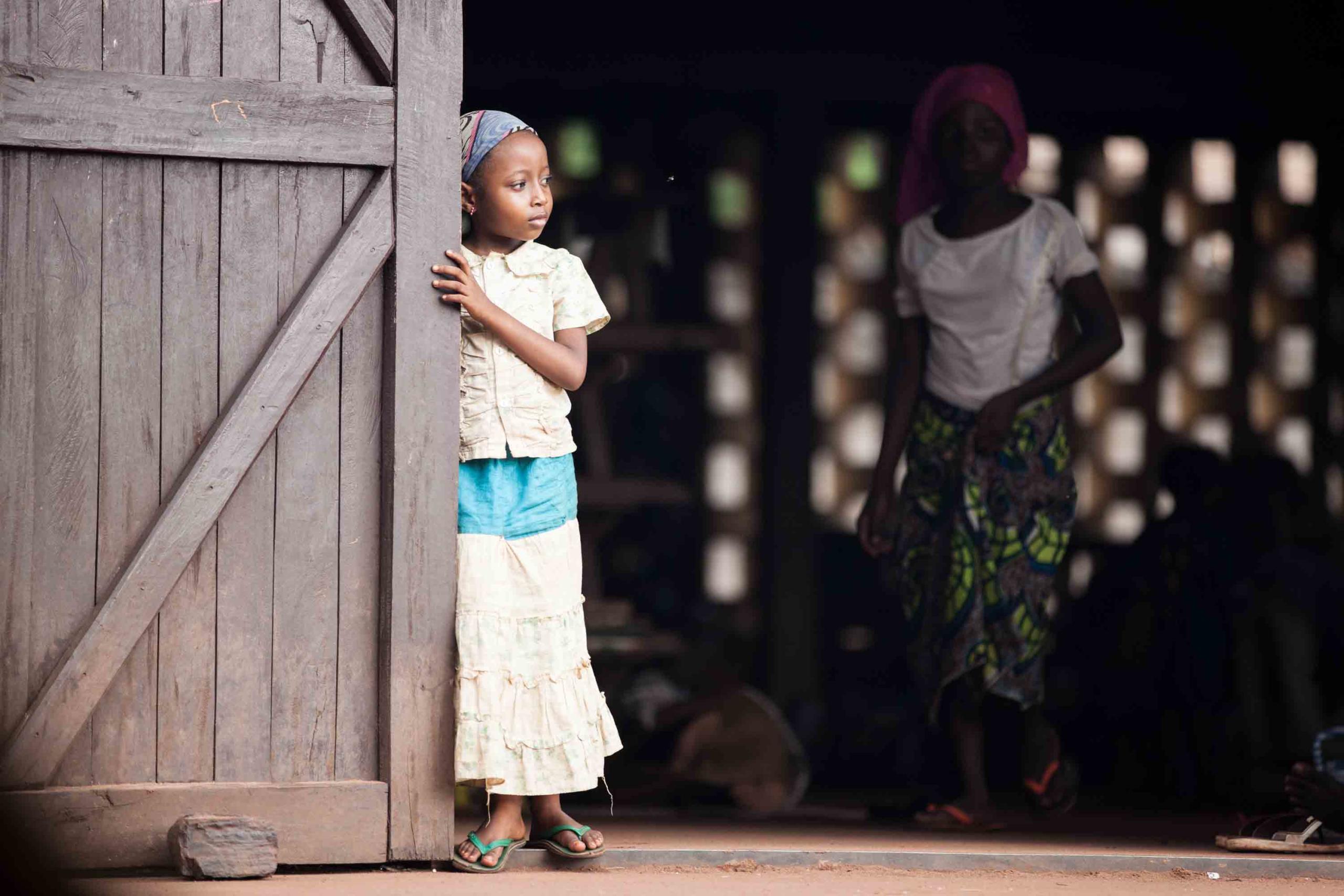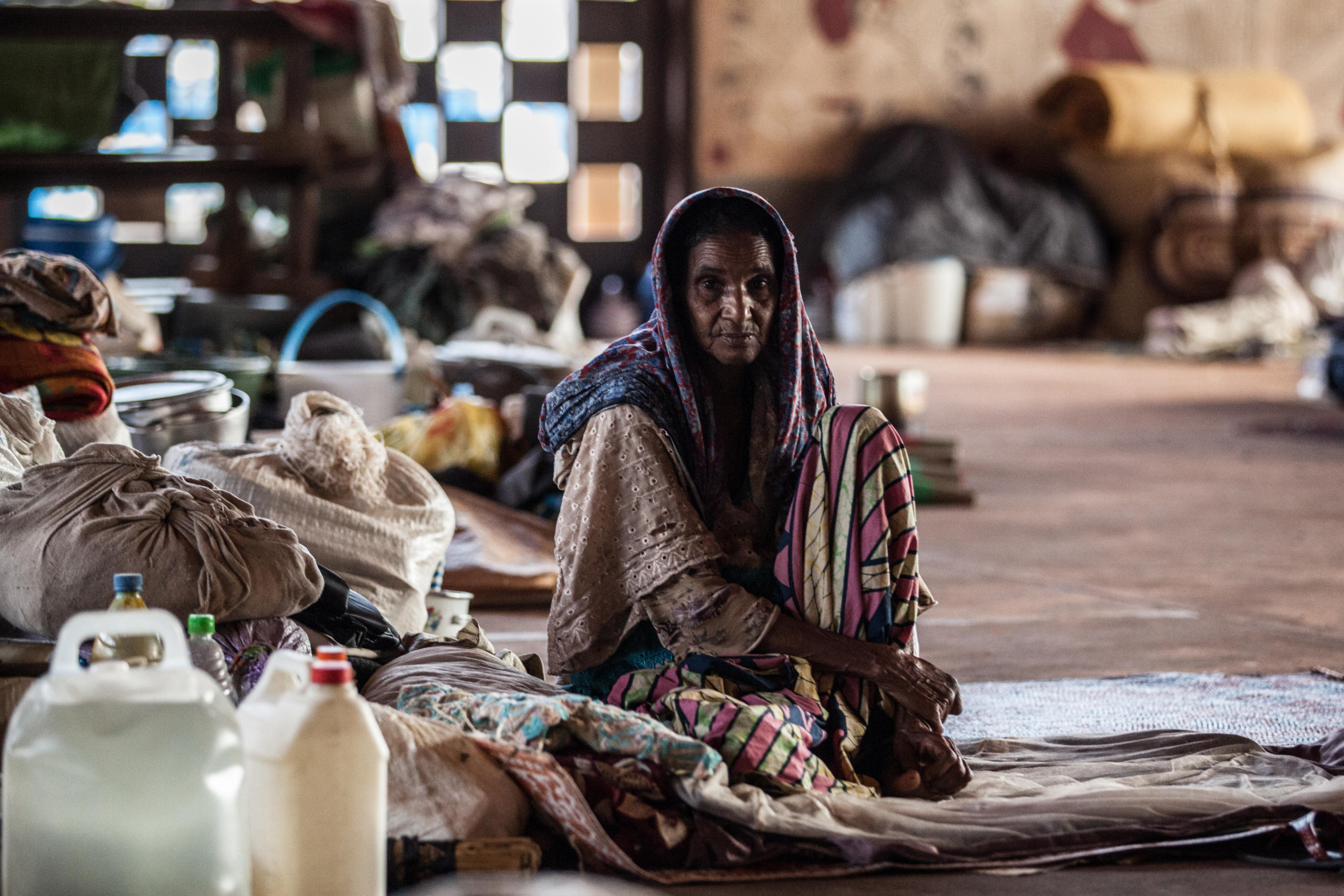
More than a year after the height of the crisis approximately 440,000 Central Africans continue to be internally displaced. Almost half a million Central Africans are refugees in neighbouring countries.
A new NRC report, entitled ‘Displacement and Housing, Land and Property Rights in the Central African Republic’, presents the key findings of research commissioned by NRC’s Information, Counselling and Legal Assistance (ICLA) programme.

A displaced child living in an displacement site located in a church compound in Carnot. Photo: NRC/ Vincent Tremeau.
In the context of on-going displacement, the report suggests that the greatest challenges facing displaced people are:
- Dangerously poor living conditions in many displacement sites;
- Risk of violent attack or harassment outside of IDP sites, resulting in highly restricted freedom of movement;
- Poor access to humanitarian assistance outside of IDP sites (those living with host families or in the bush);
- High risk of eviction for families in rental accommodation or squatting in abandoned homes and buildings;
- Serious barriers to return, including the looting, burning and the illegal occupation of homes that have been abandoned by IDPs.
As one of the IDPs consulted in the study described his situation:
Once here [Sibut], we have taken over some abandoned houses and settled in. It has now been three months since we started living here. Before reaching Sibut we spent three months in the bush. We are not the only ones to have occupied an abandoned house. If those who used to live in this house come back, we’ll be forced to pack our bags and leave, sleep again in the bush or wander, like animals.

Muslims have sought refuge and protection in the catholic church of Carnot. Photo: NRC/ Vincent Tremeau
The crisis has significantly weakened CAR’s already weak governance structures. Attempts to restore rights to housing, land and property are further complicated by CAR’s outdated and incomplete legal framework relating to land ownership and eviction. Finally, many Central Africans do not have valid documents to prove ownership of their land or dwellings. Women in particular suffer from discriminatory ownership and inheritance practices that often result in their eviction from their homes following the death of their husband or partner (see brief on this issue here).
Recommended actions
Immediate action is needed to progressively restore the housing, land and property rights of affected populations and address the needs of those without them. It is important for the CAR authorities – with the support of national and international humanitarian organisations the UN, the African Union and the diplomatic community – to act upon these obligations and to:
- Expand data collection efforts to obtain information on the needs of internally displaced people (IDPs) in sites outside of the capital, Bangui,
- Expand aid to IDPs seeking safety outside displacement sites.
- Enable IDPs and refugees to make an informed, timely and voluntary decision on the best way to achieve a durable solution to their displacement
- Urgently adopt a comprehensive durable solutions strategy – not simply a strategy to facilitate return.
Furthermore, the UN and both humanitarian and development organizations now present in CAR should:
- Undertake assessments to get a clearer picture of the scale of damaged, destroyed, abandoned and occupied housing;
- Ensure that on-going efforts to assist IDPs/returnees to regain their home include those who used to rent housing prior to their displacement;
- Provide alternative shelter for IDPs seeking shelter in abandoned housing or regulate their occupation and improve their security of tenure;
- Plan how to end occupation of property by people without legitimate humanitarian needs;
- Develop strategies to address the likely increase in disputes over HLP assets;
- Identify credible and unbiased local authorities and other structures for capacity building in HLP rights and dispute resolution skills;
- Recognise the likelihood of an increasing rate of eviction of women and accordingly organise awareness-raising activities on the equal rights of men and women.
Ensuring that the displaced population and returning refugees are able to access their abandoned housing or are compensated for property destroyed during the conflict can be an important step towards reconciliation between the sharply divided communities in CAR. Peace processes often give priority to addressing violations of political and civil rights, but experience has shown that addressing violations of social and economic rights (such as housing, land and property rights) is also a critical step towards a durable peace.

A significant number of displaced people in CAR live with host families. Photo: NRC/Vincent Tremeau



